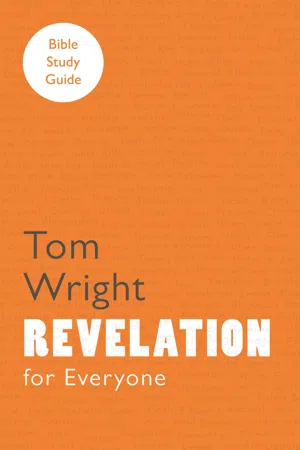1
JESUS REVEALED
Revelation 1
Some years ago there was an eclipse of the sun. These things happen rarely enough, and to witness it is a great experience. But staring at the sun, as it slips behind the moon and then emerges the other side, is dangerous. If you look through binoculars, or a telescope, the sun’s power on your eye can do permanent damage. It can even cause blindness.
On this particular occasion, there were public warnings broadcast on radio and television, and printed in the newspapers, to the effect that people should be careful. Only look, they said, through special dark glasses. Eventually one person, who obviously had very little understanding of natural phenomena, got cross about all this. Surely, they thought, this was a “health and safety” issue. A letter was sent to the London Times: if this event was so dangerous, why was the government allowing it in the first place?
Fortunately, even the most totalitarian of governments has not yet been able to control what the sun and the moon get up to. But the danger of full-power sunlight is worth contemplating as we hear John speaking about his vision of Jesus.
OPEN
Have you ever stared at the sun for just a moment too long? What effect did it have on you?
STUDY
- Read Revelation 1:1-8. Who is this book all about and what do we learn about him in these opening verses?
- What does it mean that this book serves as a “testimony” or “witness” (v. 2)?
- Even in this short opening John manages to unveil a good deal of what he believes about God and Jesus, and about the divine plan. God is the Almighty, the beginning and the end. Other “lords” and rulers will claim similar titles, but there is only one God to whom they belong.
What other “lords” in our own day make competing claims to the Almighty status that—as John testifies here—in reality belongs to God alone?
- Read Revelation 1:9-20. Where is John when he writes this letter and why is he there?
- Why would this be important to John’s original readers?
- Exile has given John time to pray, to reflect, and now to receive the most explosive vision of God’s power and love. How have you experienced God’s power and love in the midst of painful or distressing situations?
- What does John see when he turns to find out who is speaking to him (vv. 12-16)?
- This vision of Jesus draws together the vision of two characters in one of the most famous biblical visions, that of Daniel 7. There, as the suffering of God’s people reaches its height, “the Ancient of Days” takes his seat in heaven, and “one like a son of man” (in other words, a human figure, representing God’s people and, in a measure, all the human race) is presented before him, and enthroned alongside him. Now, in John’s vision, these two pictures seem to have merged. When we are looking at Jesus, he is saying, we are looking straight through him at the Father himself.
Why is it significant for us that the one who represents humanity and the God who rules above all come together in the person of Jesus?
- What is John’s response when he sees this vision of the “one like a son of man” in the midst of the lampstands (v. 17)?
- Why does Jesus emphasize that he is the “living one” who holds “the keys of death and Hades” (vv. 17-18)?
- Seven is the number of perfection, and the seven churches listed in verse 11 stand for all churches in the world, all places and all times. The seven churches need to know that Jesus himself is standing in their midst, and that the “angels” who represent and look after each of them are held in his right hand.
How might this vision of Jesus in the midst of the churches have comforted suffering believers in the first century?
- How does it bring comfort to us today?
PRAY
Hold the picture of Jesus in your mind, detail by detail. Let those eyes of flame search you in and out. Imagine standing beside a huge waterfall, its noise like sustained thunder, and imagine that noise as a human voice, echoing around the hills and round your head. And then imagine his hand reaching out to touch you and his voice speaking the words, “Do not be afraid.” Take comfort in his presence. Give him thanks for revealing himself to you and ask that you might have eyes to see him as he truly is.
NOTE ON REVELATION 1:1
The word revelation has come to be used as the title for the book (not “revelations” in the plural, please note). This is partly because the original word, apocalypse, wasn’t well known at the time of earlier translations into English. Now, of course, apocalypse, and its cousin apocalyptic, have become well known in English. Perhaps too well known: they have come to refer not so much to the sudden unveiling of previously hidden truth, but to major events, violent and disturbing events such as natural disasters (earthquakes, volcanoes, tsunamis) or major and horrific human actions such as genocide in Cambodia or Rwanda.
But that isn’t quite the sense that revelation or apocalypse has in this book. John is picking up a way of writing well known in the Jewish world of the time. As mentioned earlier, this way of writing was designed to correspond to, and make available, the visions and “revelations” seen by holy, prayerful people who were wrestling with the question of the divine purpose.




